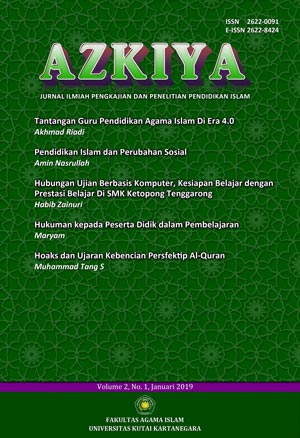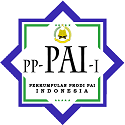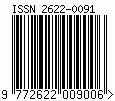HUKUMAN KEPADA PESERTA DIDIK DALAM PEMBELAJARAN
DOI:
https://doi.org/10.53640/azkiya.v2i1.719Keywords:
Punishment, Students, LearningAbstract
Punishment is an inseparable part of education. The existence of institutional rules requires other parties (students) to receive sanction/ penalties when the rules are ignored. However, punishment cannot be carried out arbitrarily because there is a limit to punishment. So, before giving sentence to students it should be considered carefully and carefully studied the benefits and disadvantages. What penalties and under what conditions the punishment should be given and should not be given to students. The punishment is carried out so that students are aware of their mistakes and so as not to repeat their bad deeds, not to take revenge. Although the punishment given causes suffering for the condemned (students), but the punishment should also be a motivational tool, a motivating tool to be more active in learning activities and to improve the attitudes and behavior of students.References
Ag. Soejono. 1980. Pendahuluan Ilmu Pendidikan Umum. Bandung: Ilmu.
Al-Rasyidin. 2008. Falsafah Pendidikan Islam. Bandung: Cita Pustaka.
Hasbullah. 2006. Dasar-dasar Ilmu Pendidikan. Jakarta: Raja Grafindo Persada.
Kartini Kartono. 1992. Pengantar Mendidik Ilmu Teoritis (Apakah Pendidikan Masih Diperlukan). Bandung: Mandar Maju.
M. Ngalim Purwanto. 2011. Ilmu Pendidikan Teoritis dan Praktis. Bandung: Rosdakarya.
Suwarno. 1992. Pengantar Umum Pendidikan. Jakarta: Rineka Cipta.
Syafaruddin dkk. 2009. Ilmu Pendidikan Islam (melejitkan Potensi Budaya Umat). Jakarta: Hijri Pustaka Utama.
Undang-undang Nomor 20 Tahun 2003 tentang Sistem Pendidikan Nasional. Jakarta: Departemen Pendidikan Nasional Republik Indonesia.













